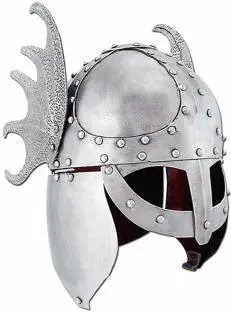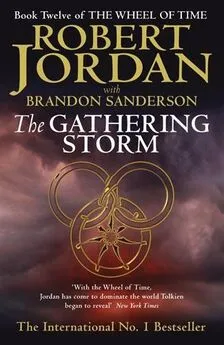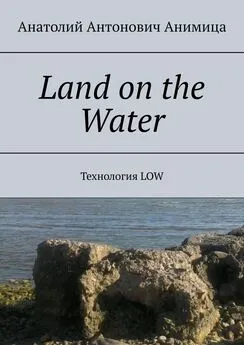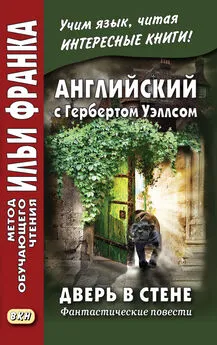Robert Low - The Whale Road
- Название:The Whale Road
- Автор:
- Жанр:
- Издательство:неизвестно
- Год:неизвестен
- ISBN:нет данных
- Рейтинг:
- Избранное:Добавить в избранное
-
Отзывы:
-
Ваша оценка:
Robert Low - The Whale Road краткое содержание
A band of brothers, committed only to each other, rides the waves, fighting for the highest bidder, treading the whale road in search of legendary relics.
Life is savage aboard a Viking raiding ship. When Orm Rurikson is plucked from the snows of Norway to brave the seas on the Fjord Elk, he becomes an unlikely member of the notorious crew. Although young, Orm must quickly become a warrior if he is to survive.
His fellow crew are the Oathsworn---named after the spoken bond that ties them in brotherhood. They fight hard, they drink hard, and they always defend their own.
But times are changing. Loyalty to the old Norse Gods is fading, and the followers of the mysterious "White Christ" are gaining power across Europe. Hired as relic hunters, the Oathsworn are sent in search of a sword believed to have killed the White Christ. Their quest will lead them onto the deep and treacherous waters of the whale road, toward the cursed treasure of Attila the Hun and to a challenge that presents the ultimate threat.
Robert Low has written a stunning epic, a remarkable debut novel. Not only a compelling narrative, The Whale Road also brings a new Viking landscape stretching from Scotland through the Baltic and on to Istanbul.
________________
"A company of warriors, desperate battles, an enthralling read."
---Bernard Cornwell
The Whale Road - читать онлайн бесплатно ознакомительный отрывок
Интервал:
Закладка:
I woke with something warm and heavy on my body, the but lit only by the remaining embers of the fire.
I tried to sit up but a hand shot out, long and white and strong enough to shove hard on my breastbone and force me back on to the bed.
Her hair was hanging down in mad tangles, her cheekbones flaring in the red light, her eyes clear and black—black as Einar's own, I noted. There were shadows under them and harsh lines carving the sides of that slapped-red mouth. The strong hand which fastened me to the bed had stark blue veins, proud on the pale skin.
Mesmerised, I watched her sway above me, lean down, stare into my eyes.
Òrm,' she said and I could not move. 'I know what you seek. I know where the forge is. I went there, but was too big to get in, too afraid. The other . . . the Christ priest's hound caught me. But I must go back. Take me back. I have to find a way to the dark . . . to the dark place where she is.'
And she was gone, fallen forward on to me, with no more weight than a husk and for all that it was a thump, it drove no breath out of me—just the opposite. I found myself holding her, caging her as her head lay on my chest, with the Thor hammer/cross biting into her cheek.
And I fell asleep like that, holding her—though, in the morning, she lay asleep in her own pallet and I wondered if I had dreamed it, but she woke and smiled at me and I saw that she was scarce older than I was.
And then she talked.
After I had fetched her gruel and water, I went to Einar and found him cross-legged under an awning, fixing the boss of his shield back on. Men were busy with tasks; I saw Hring, out in the faering, trying for fish at the mouth of the estuary.
I sat down opposite Einar and waited, Eventually, he deigned to look up at me, taking some rivet nails from his lips under the black waterfall of his hair.
`The woman is called Hild,' I told him. `She is a Finn and her village is two days up the coast from here.
Her father was called Regin and his father before him and so on back into the dim. Every smith was called Regin and the village name is Koksalmi.'
The black eyes fixed mine. 'How can you talk to her?'
Òne of Gudleif's other fostris was a Finn. I learned enough from him.'
Einar stroked his moustaches and looked towards the hut. 'What makes this Finn woman so special?'
`She is revered because she has the blood of the old smiths,' I went on. 'There is no smith there now and has not been for many years. The last one made the sword for Atil, she says, and no one but her knows the way into the forge now. All those with the blood seem to know it, but of this part I am unclear. She, too, I think. It does not seem to be a secret passed on, just something that . . . is.'
`Why is the forge important? Why is she ?'
I nodded, having anticipated that. 'The monk found out that this magic Christ spear he sought had been taken there long ago and sent Vigfus to see if it was still hidden there and, if so, get it. When Vigfus failed, he tried to seize Hild, seeing she was so esteemed by the villagers and hoping they would hand it over in return for her life. She fled, to the forge, I am thinking . . . I stopped, for here her tale had splintered into fragments.
Ànd?'
I shrugged. 'Something happened there. Something that drove her into the clutch of Vigfus—but something that haunts her dreams still.'
À fetch?' demanded Einar.
I nodded. The restless spirit of the dead, the fetch, sometimes invaded other bodies, or walked around in their old shape until some strange design of their own had been accomplished. Everyone knew it.
`She says she must get back to the forge. I don't know why, but it seems if she does, she will know where the Atil sword now lies. And the hoard with it.'
Einar stroked his moustaches. He had, I noticed, shaved his cheeks and his hair was washed and nit-combed clean. I felt my own filth more as a result.
Ìnteresting,' he mused. `Vigfus is far behind and heading in the wrong direction, towards the god stone that is no use to him. Starkad knows only this village by name and seeks a Christ ikon that no longer exists in the same shape.'
`So, if we can get to this forge and the woman really does then know where the hoard is . . .' I added.
`We can leave them all behind,' finished Einar. He tapped in a rivet and nodded sombrely at me. 'You have done well. Let us forget the unpleasantness between us. You have, as Illugi Godi is pleased to remind me, an old head on young shoulders.' He squinted at me. 'Shoulders which, I am noticing, have filled since last autumn.'
He rose, moved to his sea-chest and rummaged in it, coming out with a long hauberk of mail. It was, I recalled, the one stripped from the dead fyrd leader after the fight at St Otmund's chapel.
I caught it when he threw it at me and, when I slipped it on over my raised arms, the weight made me stagger a little, but it fitted well round the shoulders and was suitably loose round the waist that a cinched belt would take the rest of the weight off.
He nodded. 'Take it. You have earned it.'
I bowed to him, as I had seen others do with Gudleif, and that pleased him. I fastened on my swordbelt and swaggered back to the fires, one hand on the hilt, salt-stained seaboots stumping.
There were good-natured catcalls and jeers and backslaps when the rest of them saw it—and not a few envious stares from older hands, who would have loved such a gift and thought a beardless youth didn't deserve it.
My father was prouder than I was of it and offered advice on its care. 'Roll it in a barrel of fine sand for a day,' he advised and everyone hooted tears at that—fine sand for a day. On this gods-cursed shore.
But all the time I was thinking to myself that I would not trust Einar, oath or not.
And, across the fire, I saw the fierce, yellow-eyed stare of naked hatred that came from Ulf-Agar, for all that he was still weak and bruised.
Life, I thought, bending and wriggling the mail off, to the thigh-slapping roars of laughter at this first attempt, was simpler when I climbed sheer cliffs for gull eggs.


6 The way the tales tell it, raiders from the sea always arrive out of the mist. Even our own sagas have followed this in recent times, with high-prowed shapes, black against the sea mist, sprinting for the unsuspecting shore to spew out armed warriors like strewn dragon teeth.
This, I know now, is because the only ones who can write about it at all were usually not there and heard it from those who hadn't sailed anywhere. Monks, the curse of truth.
And the truth is always less than the tale. We arrived at a place called Kjartansfjord out of a mist thick as gruel, gliding on black water and moving so slowly an old man swimming could have overtaken us.
Out in front, in a leaking coracle of withy and sealskin, was Pinleg, a torch in hand and more oil-soaked wrappings at his feet to keep it fed. I was on the oar and a long line ran back to the prow of the Elk, so that it looked as if we were towing her.
In fact, we were making sure there was nothing that would splinter her, while not getting lost in the mist ourselves.
In the prow of the Elk I could see my father, peering at the water. Beside him, swathed in my long, hooded cloak, was Hild and it was her we had to thank for being able to find this fishing village and fjord at all, which lay at the mouth of an estuary, further east and north than we cared to be, right up in the Karelian lands of the Finn.
Some twenty miles up the river lay her home—and the forge—so she knew the landmarks and that was just as well, for even my father's skill would never have found this place in the fog.
We crept in, like fearful sheep. Those not at the Elk's oars were armed and grim, for no one could be sure what waited for us here.
`Ship,' called Pinleg and waved the torch side to side, a signal for the Elk to back water.
Ìt's a knarr,' he added a moment later and looked at me, licking lips that were as dry as my own, despite the slick mist-wet that soaked us. We waited, slipping so slowly through water so flat and still it could have been ice; we made scarcely a ripple on it.
`Not Vigfus,' Pinleg said a moment later, the relief clear in his voice, 'but I don't know whose ship it is.
Besides it, there are only fishing boats.'
The knarr turned out to belong to Slovarkan, a trader from Aldeigjuborg. A number of the Oathsworn, being Rus from Novgorod and Kiev, had wives and family in that place, which stood at the mouth of the Tanais, and which had featured in my dreams ever since I'd heard someone say of my father that he was 'off down the Tanais'.
In my daydreams, the Tanais was a silvered serpent of a river, gliding through a land of fables, rich with treasure and adventure.
It doesn't exist at all, though, being a single name for the Volkhov, the Syas, the Mologa and all the rivers, portages, rapids and cataracts that lead from Aldeigjuborg in the north to Kiev and, eventually, the Black Sea. Along the Tanais came glass from Serkland, silk from the far Cathay lands, narrow-necked bottles from east of the Caspian, embroidered pouches from the lands of the steppe tribes—and, once, silver from beyond the steppe, from places with names like Tashkent.
But, as Slovarkan bemoaned moodily, when he realised we were less of a threat than he'd first thought, there was no silver. Sviatoslav, the great Prince of the Rus, was thrashing about against the Bulgars and the Khazars and had stopped the flow. Some, Slovarkan added darkly, were saying it was even worse, that the mines of Serkland and Tashkent were played out, which probably meant the end of the world.
We listened politely and sorted out our gear, made shelters on the shingle and, when the sun burned off the mist, went up the beach to the huddle of houses that marked the small village to try to tempt the fled people back.
Small was too big a word for it. Its name—Kjartansfjord—was bigger than it was. It was a fishing port, loud with screaming gulls and whitened with their shit. Its one big feature was a stone-built jetty where the terns dipped and wheeled. The shingle beach was webbed with strung nets.
Einar, I knew, would rather not have stopped here at all, would rather have used the mist to sneak past into the river and on up it without trace. But we needed food and water and ale. We needed time to dry out, repair, replace—but the best we could find in Kjartansfjord was some coarse, hard bread, some new rope, ships' nails and all the fish we could store away once the people realised we hadn't come to rob them.
In the end, they robbed us , which was what always happened when the Oathsworn tried trading.
Slovarkan had a cargo of hoes, axes, saws and spades, practical stuff likely to be in bigger demand than exotic bottles from east of the Caspian—but he also had three dozen bolts of good wool cloth in various colours. Since Einar had a bucket of silver, both parties were delighted to trade and a morning was spent weighing, clipping and sorting hacksilver while the ragged Oath-sworn went off with cloth to try to replace the worst of their clothing.
Einar, at first, was all for sailing on upriver the next day, as Slovarkan's knarr slipped out on the tide, southbound. He was convinced that either the trader would meet Starkad, or Starkad's drakkar would arrive at any moment.
Читать дальшеИнтервал:
Закладка:







